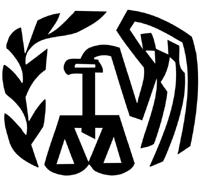Lots of people run their own business from home, either as a main job or to supplement wage income. Such ventures also can provide several tax-saving deductions. Tax laws clearly state that a business must have a clear business purpose and profit motive before the operator can claim business expenses. But to meet IRS muster when claiming such breaks, the home-based business must be legitimate.
Tips from the IRS on Avoiding Home Business Tax Schemes:
- These schemes are abusive because they manipulate and misinterpret tax laws.
- The public should not be fooled by home-based business schemes that claim taxpayers can deduct most, or all, of their personal expenses as business expenses.
- Taxpayers should be wary of promoters who claim otherwise.
- The IRS and other federal agencies are aggressively pursuing and successfully prosecuting promoters of schemes and scams, including abusive home-based business schemes.
- Participating in these schemes can result in repayment of taxes owed with interest and penalties, and possibly imprisonment and fines.
- Even innocent taxpayers involved in these schemes can face a staggering amount of back interest and penalties.
- Taxpayers involved in one of these schemes should correct any improper tax return filings.
Most taxpayers with small businesses accurately report their income and expenses. However:

Schemes involving inflated business expenses, deduction of personal expenses and misuse of purported home-based businesses have become prevalent. The IRS has become aware of several abusive tax schemes, which involve taxpayers erroneously deducting personal living or family expenses.
Examples of these tax evasion schemes are:
- Bogus home-based businesses: taxpayers attempt to create the appearance of having a home-based business – where none actually exists – and deduct personal, living or family expenses.
- Legitimate home-based businesses: taxpayers have a legitimate business operated from their home but erroneously attempt to deduct personal living expenses.
These schemes have gained popularity due to aggressive marketing by promoters who sell such schemes as a means to reduce taxes. These schemes are abusive because they manipulate the interpretation of the tax laws.
Some promoters market a package, kit or other materials that claim to show taxpayers how they can avoid paying income taxes but the arguments used have no merit. Abusive promoters typically advise taxpayers to maintain detailed records of their activities and the expenses they incur; however, detailed records do not convert personal, living or family expenses into deductible business expenses. Expenses must be “ordinary and necessary” in relation to a legitimate business activity, and satisfy all other requirements in order to be deductible business expenses on a tax return. Taxpayers should beware of claims that are too good to be true and seek independent professional tax advice.
How tax laws are misused
According to the IRS, there have been several methods used by unscrupulous tax preparers that say it’s OK to deduct personal living expenses from federal taxes. The IRS recommends considering the following items before devoting your time and resources into a possible abusive federal tax deduction situation:
- Any investment scheme or promotion that claims to allow a federal income tax deduction for normal personal expenses should be considered highly suspect
- A business must truly exist prior to claiming expenses
- In order to be deductible, the expenses must be ordinary and necessary expenses paid or incurred in carrying on a trade or business
- Personal, family and living expenses are not deductible business expenses
- Forming an S corporation, partnership, or any other pass-through entity does not cause personal, living and family expenses to become deductible; nor do incorporation, the existence of board minutes, and partnership agreements authorizing personal, living or family expenses cause these expenses to become deductible
Examples of misuse of tax law:
The following examples come from the IRS. We recommend reviewing them closely before filing your federal taxes.
- TRAVEL – Deducting travel, meals, and entertainment under the guise that everyone is a potential client.
- AUTO – Excessive car and truck expenses when the asset has been used for both business and personal use.
- PAYMENTS TO FAMILY MEMBERS – Deducting payments to family members for routine household tasks that are not ordinary and necessary to the operation of the business, such as taking out the trash, mowing the lawn, washing the car, answering the telephone, etc. Also payments to family members that are excessive in relation to the services performed.
- BUSINESS USE OF HOME – Abusive promoters often advise taxpayers to deduct excessive costs associated with the operation of the home. The promoters claim that the “exclusive use” restriction can be avoided by placing business-related items in each room of the house. A deduction for the business use of a home is limited to that area of the home that is used regularly and exclusively for business purposes (Internal Revenue Code Section 280A). For example, merely placing a calendar or file cabinet in a room does not satisfy the “regular and exclusive business use” requirement.
- EDUCATION EXPENSES – Some schemes advise taxpayers that they may claim up to $5,250 per year in educational expenses for each family member. There are specific requirements that preclude virtually all investors in this scheme from qualifying for this deduction (Internal Revenue Code Section 127).
- MEDICAL REIMBURSEMENT PLANS – Abusive promoters assert that taxpayers can make their family’s medical expenses 100 percent deductible merely by employing their family member(s). In order for the medical expenses to be deductible under a self-insured medical reimbursement plan, a bona fide employer-employee relationship must exist. In addition, the plan has to meet other requirements (Treasury Regulation Section 1.105-11).
- RECORD KEEPING – Taxpayers in these schemes are advised to maintain detailed records of all expenses incurred. The existence of such records does not negate the requirement that expenses be “ordinary and necessary” in relation to a legitimate business activity. The expenses must also satisfy any other deductibility requirements (Internal Revenue Code Section 274).
